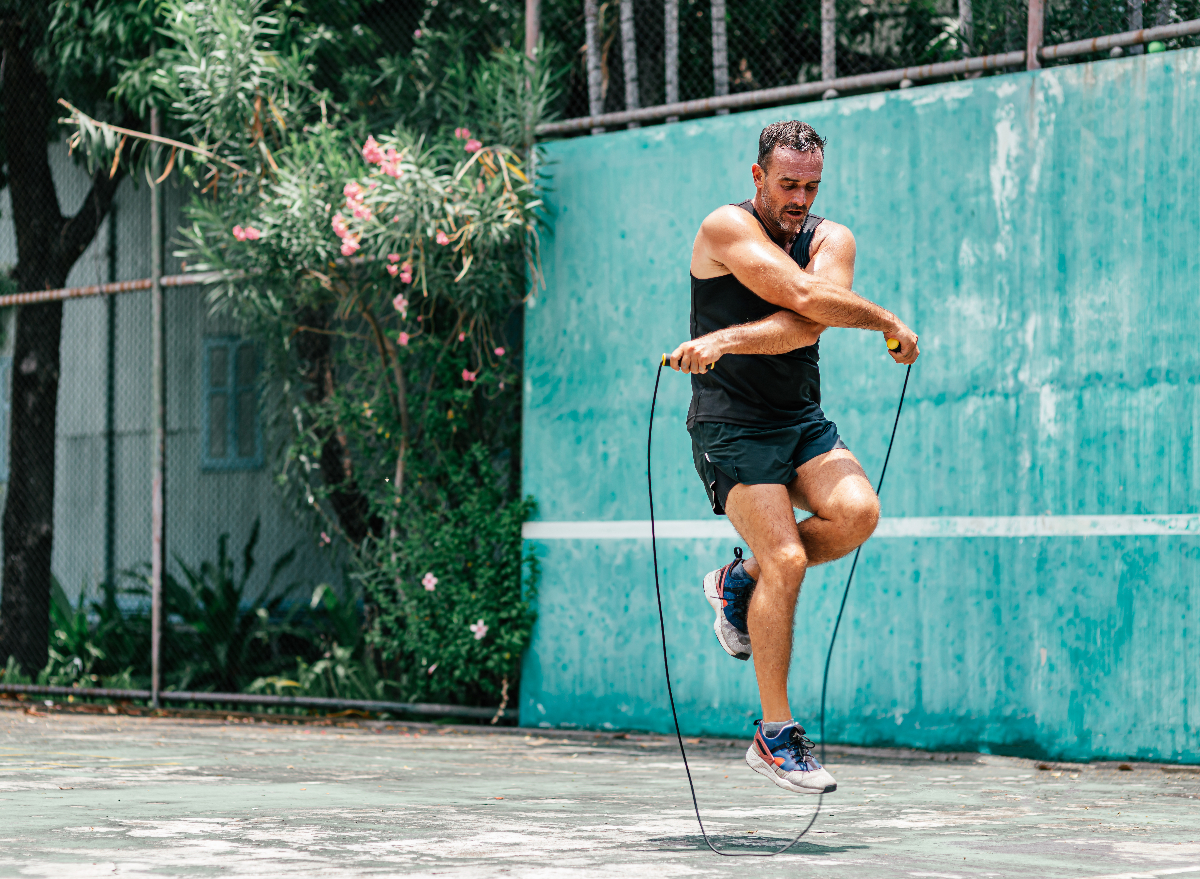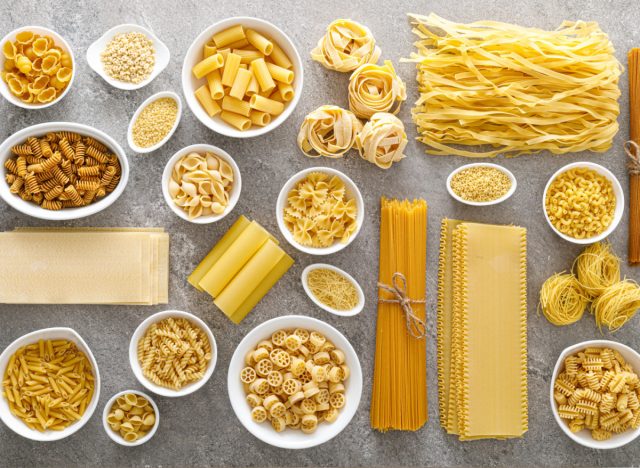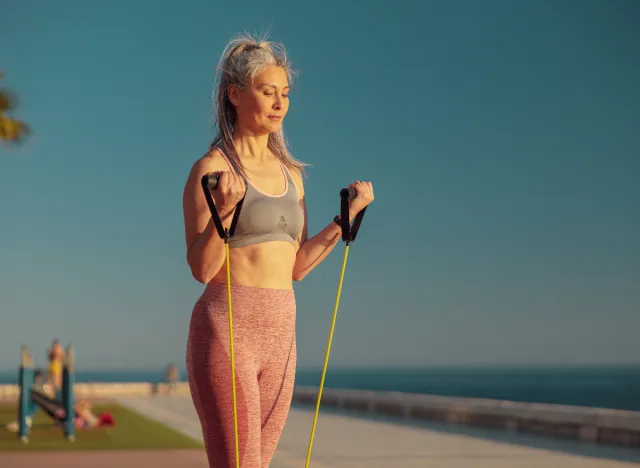The 5 Best Diet & Exercise Tips To Regain Muscle Mass

Losing muscle mass as you age is simply a frustrating fact of life. The sooner you accept it, the sooner you can get started working on it. We're here to share with you how to regain muscle mass with five expert-approved diet and exercise tips. So get ready to eat and exercise in all good ways to keep your body healthy, strong, and happy.
Eat This, Not That! reached out to Mike Bohl, MD, MPH, ALM, the Director of Medical Content and Education at Ro, a certified personal trainer, and a member of our Medical Expert Board, to learn exactly how to regain the muscle mass you've lost. Dr. Bohl explains, "Building muscle takes effort and dedication—it's harder and takes more time to put on muscle mass than to gain weight from fat. But with the right combination of diet and fitness, it's possible."
Typically, muscle is much easier to get back if you maintain a surplus of around 350 to 500 extra calories each day. If you can, consuming additional calories may help you gain back muscle faster, along with following some crucial diet and exercise tips in your routine. Keep reading to learn more, and next, don't miss The Best Exercises To Regain Balance After 60, Trainer Says.
Consume enough carbohydrates each day.

Dr. Bohl points out the importance of eating enough carbohydrates each day, explaining, "A lot of diet plans talk about limiting carbohydrates, but when it comes to muscle gain, carbohydrates can be your friend. Carbohydrates are an easy energy source that increases the total amount of calories you're consuming in a day and give your body fuel to power your workouts. To gain muscle, you should aim for eating four to seven grams of carbohydrates per kilogram of body weight per day."
Remember to eat a carbohydrate-rich snack prior to hitting the gym. It will provide quick energy, which is beneficial to building your muscles.
Eat a diet that's high in protein.
Muscle is comprised of high protein, so it's critical to get enough of it through the foods you eat every day. Dr. Bohl tells us, "For optimal muscle protein synthesis, you should aim for 1.6 to 2.2 grams of protein per kilogram of body weight per day (and even more if eating at a calorie deficit)."
Focus on "high biological value proteins," aka ones that are filled with essential amino acids. This includes whey protein, lean beef, chicken, and eggs.
Be sure to include fats in your diet.
The third major macronutrient just so happens to be fats, and you need to eat them when you are trying to build muscle. Dr. Bohl says, "You should aim for 20 to 35% of your calories per day to come from fats and try to prioritize monounsaturated and polyunsaturated fats over saturated fats."
Resistance training is key.

The most direct way to gain muscle is to perform resistance training when it comes to working out your muscles. This is also known as weightlifting or strength training.
"Hitting the gym several times a week, using free weights, selectorized machines, resistance bands, or doing bodyweight exercises, and targeting different muscle groups on each day (to give individual muscles at least two days to recover between workouts) is your best bet for gaining muscle," Dr. Bohl points out.
Be mindful of both the volume and timing when doing cardio and other exercises.
You have to make sure your exercise routine is well-rounded, and it's really beneficial to include non-resistance training exercises, such as cardio. But if your end game is muscle gain, Dr. Bohl suggests, "It's important to be thoughtful about when and how often you incorporate these other forms of exercise into your routine. For example, while cardio can be great for heart and blood vessel health, it also uses up a lot of calories. Overdoing cardio, therefore, can burn off the extra calories you're trying to consume for muscle gain, overall slowing down any muscle-building progress."








